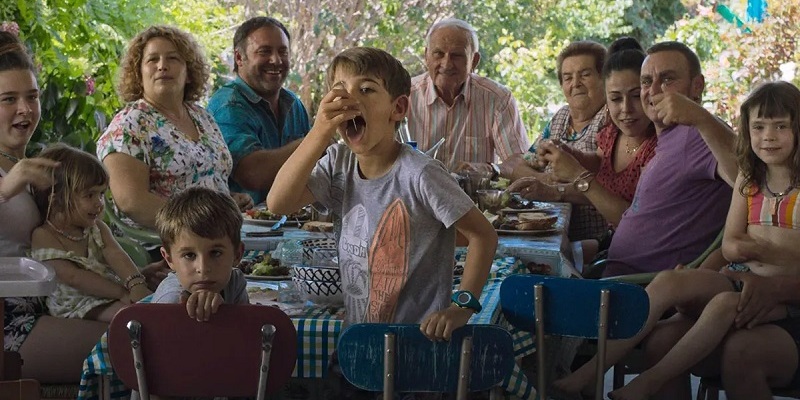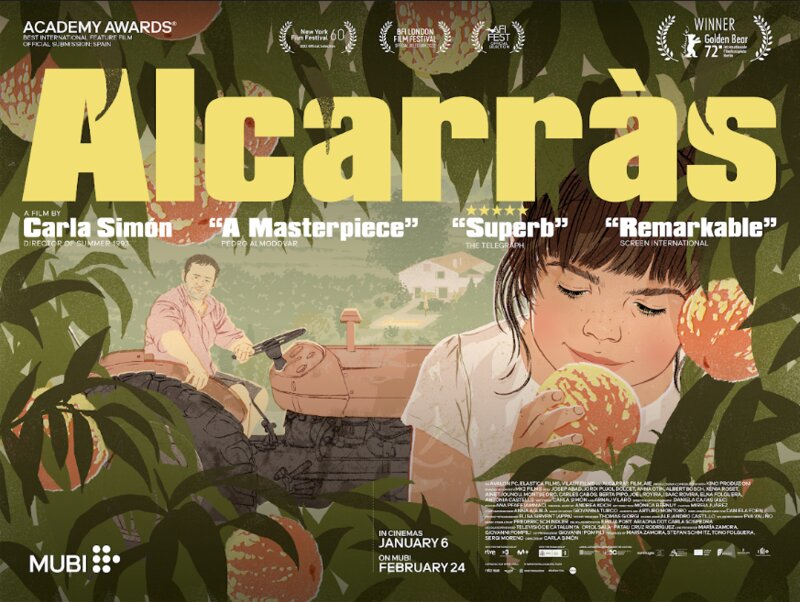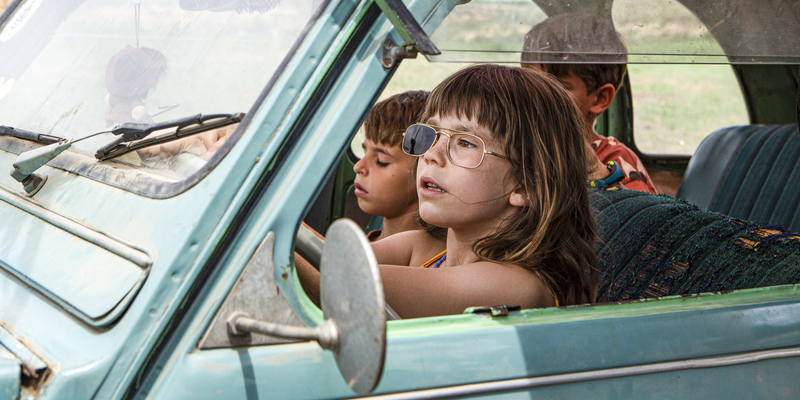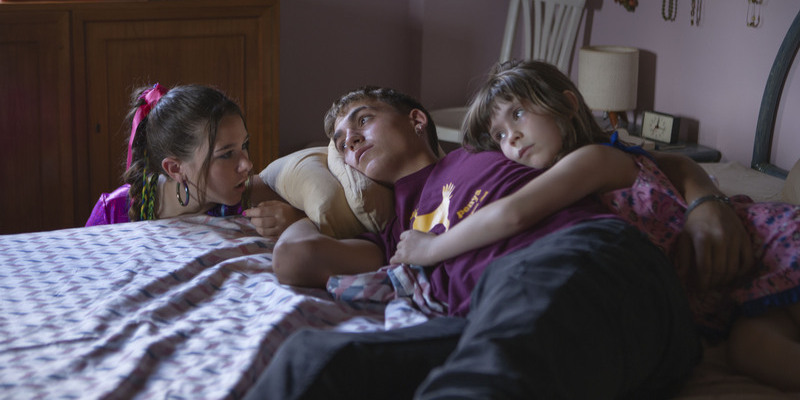
Review by
Benjamin Poole
Directed by: Carla Simón
Starring: Jordi Pujol Dolcet, Anna Otin, Xènia Roset, Albert Bosch, Ainet Jounou, Josep Abad, Montse Oró

Carla Simón's (with co-writer Arnau Vilaró) second feature
Alcarrás is a picture that pitches tradition against
progress and uses a verisimilitude style to convey the idealised bucolic
of its narrative. This is a film of contradictions, which captures the
spirited energies of a family within a lens as calm and steady as
afternoon sun. Wide releasing after its win of Berlinale's 2022 Golden
Bear, it isn't difficult to see why Alcarrás has been so critically lauded. Authenticity is the key word here,
from the rich sense of place to Simón's use of non-actors to portray her
family of peach farmers on their uppers.

We open with a trio of little kids messing around in an out-of-use car
somewhere in the Catalan sticks (the titular village of the title). Off
camera there is a dense rumbling heard, and the kids stare out of the
rusty 2CV in terrified awe at whatever is making their little den shake:
not since Jurassic Park have children sat in a cramped
automobile been depicted as scared as this. It transpires that the racket
is being made by a convey of trucks, their pale white anonymity a
forbidding contrast to the lush mise-en-scene of verdant groves and
tangerine sun, and (in what Roland Barthes might call a "symbolic code")
their buzzing engines tearing through the gentle ambiance like a chainsaw.
The earlier filmic comparison holds: these invaders are a bit like the
governmental descent which commandeers innocent suburbia in
E.T.. Likewise the care and affection with which Simón depicts the extended
familia is also in the vein of Spielberg's detailed domestic intimacy.
The nub of the film is that the family's land has been bought out against
their wishes, due to the reneging of an archaic verbal contract made
during the Civil War. The prospect of disruption affects each family
member in a different way: the little kids are all excited about the JCBs
and stuff which stand waiting on the outskirts of the orchards, while in a
bittersweet manner the older teens see the world opening up in new ways,
with the elder patriarch accepting the loss of the place he has worked his
entire life with a sense of sad certainty. Papá Quimet (Jordi Pujol Dolcet) takes it the hardest. Furious at the carelessness that has led to them
losing their source of familial income, Quimet makes himself unwell,
literally undertaking back breaking work in a vain attempt to stave off
the inescapable. In a scene of heart-breaking delicacy, we see a
grandfather and his granddaughter pick fruit together, conveying the
importance of the farm to the family, not only in terms of remuneration
but identity.

Simón's eye is pleasingly objective. Although there are depictions of
protest from Quimet and other farmers, she is disinterested in
moralising, and more geared toward representing the burgeoning family
dynamic. The eldest son, uninterested anyway in carrying on the family
business, goes into town to small clubs playing godawful European techno
and to get into hopeless scraps. The tween sister spends her days
awkwardly practicing dance routines for a show, but when the moment comes,
away from the sanctuary of the farm and in front of an assembled crowd of
strangers, she cannot muster the courage to perform. There is nothing for
them in the life they presently lead, and the implication is that the farm
has made them insular, limiting their prospects. Is the deliberate
leitmotif of dead rabbits - shot at, run over, even accidentally drowned
in the house pool - a signifier of an inexorably brutal world which the
family are not only involved in but inevitably perpetuate? Certainly, the
film pointedly shows the farmers exploiting the gig economy for cheap
labour, hiring workers whom they pejoratively refer to as "the blacks."

With its solar inflected frames, and raw but warm depiction of rural life,
Alcarrás is always lovely to look at. However, in terms of
character study, like the cultivation and harvest of the fruit which it
portrays, the narrative is often a slow and deliberate process.
Nonetheless, at this point in the year, escaping into its lush,
Mediterranean panoramas may well prove peachy.

Alcarrás is on UK/ROI VOD now.

